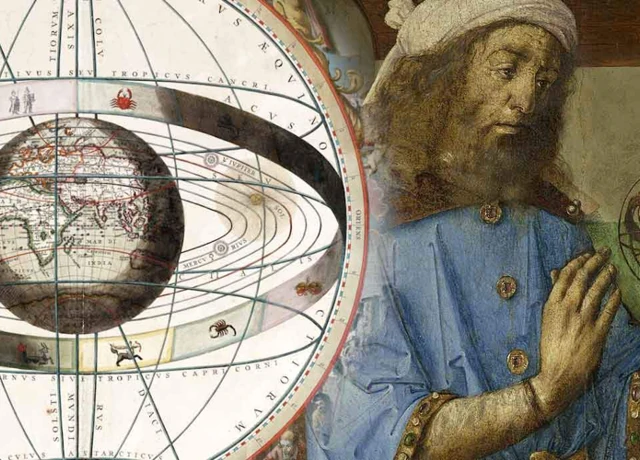As long as human civilization has existed, people have looked to the stars with awe and wonder. The practice of astrology, the study of the movements and positions of celestial bodies and their influence on human affairs, has its roots in the ancient world. The ancient origins of astrology provide a fascinating historical perspective on how this ancient practice evolved over time. From the early observations and celestial phenomena of ancient Mesopotamia to the intricate astrology of ancient China, each civilization developed its own unique approach to the study of the stars. This article will explore the rich and complex history of astrology, shedding light on its cultural significance and unraveling the influence it continues to have on modern society.
The Beginnings of Astrology
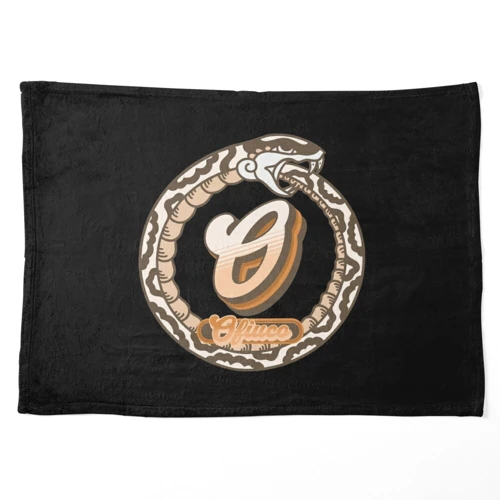
The beginnings of astrology can be traced back to ancient civilizations that were fascinated by the celestial bodies and their effects on human life. Early civilizations such as the Sumerians and the Babylonians in Mesopotamia, as well as the Egyptians and the Greeks, laid the foundation for the development of this ancient practice. While the exact origins of astrology are unclear, it is believed that it emerged as a way to make sense of the world and its phenomena. In these early societies, astrology was intertwined with religion, mythology, and astronomy. The ancient astrologers observed the patterns and movements of the stars, planets, and other celestial objects, and found correlations between these movements and events on Earth. These observations formed the basis for the belief that celestial phenomena could predict and influence human behavior, natural disasters, and even the fate of nations. Astrology was seen as a tool for divination and understanding the will of the gods, guiding individuals and societies in their decision-making processes. The influence and impact of astrology in the ancient world cannot be underestimated. It shaped the beliefs, traditions, and daily lives of the people and played a significant role in politics, agriculture, medicine, and religious rituals. The beginnings of astrology set the stage for its evolution and its role in shaping the cultures and societies of ancient civilizations. Today, astrology continues to captivate and intrigue people as a means of self-discovery, guidance, and understanding of the world around them. (source: Modern Zodiac Divination)
Astrology in Ancient Mesopotamia
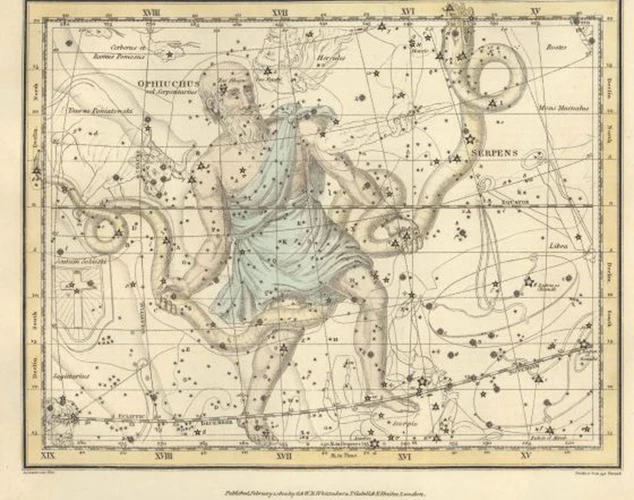
Astrology in ancient Mesopotamia played a pivotal role in the development of this ancient practice. The Mesopotamians, particularly the Sumerians and the Babylonians, were among the earliest civilizations to study the stars and their relation to human affairs. They believed that the movements of celestial bodies held significant meaning and had the power to influence the course of events on Earth. The astrologers of Mesopotamia meticulously observed and recorded celestial phenomena, including the positions of the stars, planets, and the moon. They correlated these observations with various aspects of human life, such as agriculture, politics, and the fates of individuals and nations. The Babylonians, in particular, made significant advancements in astrology, developing sophisticated mathematical methods to predict celestial events and interpret their significance. Their contributions include the creation of Zodiac signs, the idea of astrological houses, and the development of horoscopes based on an individual’s birth chart. Astrology became a part of everyday life in Mesopotamian society, influencing decision-making, determining auspicious times for rituals and ceremonies, and even guiding medical practices. The astrological beliefs and practices of ancient Mesopotamia laid a firm foundation for the subsequent development of astrology in other ancient civilizations. (source: A New Perspective on Astrological Personalities)
1. Early Observations and Celestial Phenomena
In the early stages of the development of astrology, ancient civilizations made meticulous observations of the celestial phenomena. The movements and patterns of the stars, planets, and other celestial bodies were carefully recorded and studied. These early observers noticed that certain celestial events, such as the changing positions of the planets or the appearance of comets, often coincided with significant events on Earth. These observations led them to believe that there was a profound connection between the celestial and terrestrial realms. For example, eclipses were seen as harbingers of change and were thought to have significant implications for rulers and kingdoms. The ancient astrologers also noticed that different celestial bodies had distinct qualities and influences. The sun, with its bright and warm energy, was associated with vitality and leadership, while the moon, with its cyclical phases, was linked to emotions and fertility. These early observations laid the foundation for the belief that the movements of celestial bodies could affect human lives and provide insights into their personalities, destinies, and compatibility with others. (source: The Impact of Ophiuchus on Astrological Compatibility)
2. The Babylonian Influence
The Babylonians played a crucial role in shaping the development and influence of astrology. Their contributions laid the foundation for many astrological practices still observed today. The Babylonians were meticulous record-keepers and astronomers and meticulously documented celestial events, such as eclipses and planetary movements. They believed that these celestial phenomena held great significance and were closely tied to human affairs. The Babylonians developed an intricate system of celestial divination known as “astrology,” which involved interpreting the positions of celestial bodies to predict future events.
One of the most important contributions of the Babylonians to astrology was the creation of the zodiac, a 12-fold division of the ecliptic path of the Sun. The zodiac was based on the observation of the constellations and their relationship to the Sun’s apparent path throughout the year. The Babylonians assigned specific meanings and characteristics to each zodiac sign, linking them to the seasons and agricultural activities. This zodiac system later influenced other civilizations, including the Greeks and Romans.
The Babylonians also developed a sophisticated system of astrological omens, known as Enuma Anu Enlil. These omens were based on the belief that the gods communicated their will through celestial events. Astrologers would interpret the positions and movements of the celestial bodies to predict various outcomes, such as the success of a battle or the birth of a king.
The impact of the Babylonian influence on astrology cannot be overstated. Their meticulous observations, innovative techniques, and systematized approach laid the groundwork for future astrologers and shaped the astrological traditions of many cultures. The Babylonian influence on astrology is a testament to the enduring legacy of ancient civilizations and their profound understanding of the cosmos. (source: New Perspective on Astrological Personalities)
Ancient Astrology in Egypt
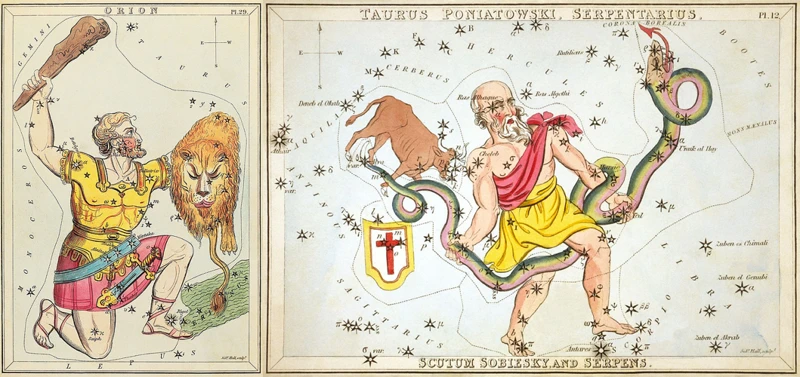
Ancient astrology in Egypt holds a significant place in the history of this ancient practice. The Egyptians, with their deep reverence for the cosmos, saw a strong connection between the celestial bodies and their earthly existence. Astrology played a central role in the lives of the ancient Egyptians, influencing their religious beliefs, agricultural practices, and even the ruling of the pharaohs. Egyptians believed that the movements of the sun, moon, and stars held immense power and influence over human affairs. They saw the sky as a reflection of the divine and used astrology as a means of communication with the gods. Astrologers in ancient Egypt closely studied the heavens, observing the movements of celestial bodies and their alignment with specific events on Earth. The Egyptians developed a complex system of astrological knowledge, which was used for divination, predicting the outcome of important events, and understanding the life paths of individuals. The Egyptian astrology system was closely tied to their calendar, with each month associated with a different zodiac sign. These signs were represented by various animals, such as the lion, the ibis, and the scarab beetle, symbolizing different traits and characteristics. This intricate system of astrology in ancient Egypt served as a guide for both personal and societal decision-making and provided a means for individuals to navigate their lives in alignment with the cosmic forces. The rich legacy of ancient Egyptian astrology continues to captivate modern-day astrologers and enthusiasts who seek to understand the profound wisdom and symbolism embedded within this ancient practice.
1. Astrology in Ancient Egyptian Culture
Astrology held a significant place in the culture of ancient Egypt. The Egyptians believed that the movements of the celestial bodies, such as the Sun, Moon, and planets, were not only indicators of agricultural cycles and timekeeping, but also had a profound influence on human lives and events. The priests and scribes in ancient Egypt meticulously observed the skies and recorded celestial phenomena, believing that these observations held the key to understanding the gods’ will and determining the outcomes of various endeavors. One of the most important aspects of astrology in ancient Egypt was the association of celestial bodies with deities. Each deity was associated with a particular planet or star, and their movements were believed to reflect the gods’ actions and intentions. For example, the Sun god Ra was linked to the Sun, while the goddess Isis was associated with the star Sirius. These associations between celestial bodies and deities influenced religious practices, rituals, and even the naming of individuals. Egyptians would consult astrological charts and alignments to choose auspicious names for their children, believing that the name would shape their destiny. Astrology also played a role in the determination of favorable dates for important events, such as coronations and religious festivals. The ancient Egyptians had a deep reverence for the stars and believed in their power to guide and influence human existence. Astrology was not only a tool for predicting future events, but also a means of connecting with the divine and understanding one’s place in the cosmic order. The influence of astrology in ancient Egyptian culture permeated every aspect of life, from religious practices to daily decision-making.
2. The Egyptian Zodiac
The Egyptian Zodiac is a unique system of astrology that developed in ancient Egypt. Unlike the Western Zodiac, which is based on the twelve constellations along the ecliptic, the Egyptian Zodiac consists of twelve Egyptian gods and goddesses that represent different personality traits and characteristics. Each deity corresponds to a specific time period, known as a decan, which is composed of ten days. The Egyptian Zodiac was closely connected to religion and mythology, with each deity embodying certain qualities and attributes. For example, the god Thoth was associated with wisdom and communication, while the goddess Isis symbolized motherhood and nurturing. Egyptian astrologers believed that the alignment of the planets and stars at the time of a person’s birth influenced their personality and destiny. The Egyptian Zodiac played a significant role in daily life, guiding important decisions, determining auspicious times for events, and providing insights into personal strengths and weaknesses. While the Egyptian Zodiac has its own distinct symbolism and mythology, it shares some similarities with the Western Zodiac. Both systems acknowledge the influence of celestial bodies on human affairs and provide a framework for understanding individual characteristics and destinies. Today, the Egyptian Zodiac continues to intrigue and inspire those interested in ancient astrology and mythology, offering a unique perspective on personality traits and the connection between humans and the divine.
Astrology in Ancient Greece
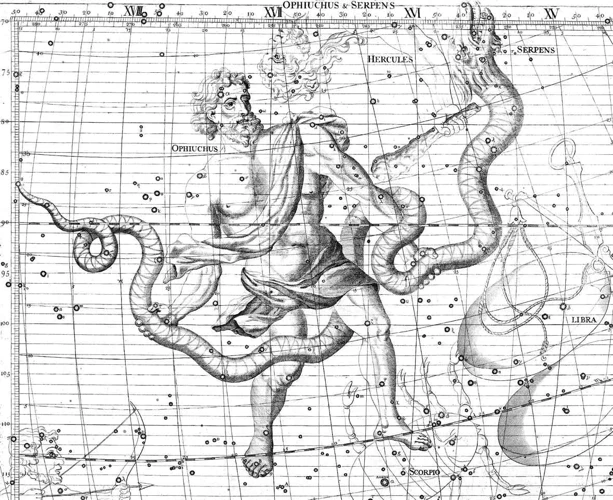
Astrology in ancient Greece played a significant role in the lives of its people. The Greeks made valuable contributions to the field, expanding on the astrological knowledge inherited from civilizations such as Mesopotamia and Egypt. Greek astrologers believed that the positions of the stars and planets at the time of a person’s birth could determine their personality traits and future. They developed complex systems and calculations to interpret these celestial alignments, creating natal charts and horoscopes to guide individuals. Astrology in ancient Greece was not just a personal practice but also had societal implications. The Greeks believed that the alignment of the stars influenced the destiny of cities and even the outcomes of battles. As a result, astrologers were consulted in matters of state and their advice often shaped political decisions. The importance of astrology in ancient Greek society is evident in their mythology, in which the gods and goddesses themselves are associated with specific celestial bodies. This integration of astrology into the fabric of Greek culture highlights its significance and enduring influence on their way of life.
1. The Contributions of the Greeks
The ancient Greeks made significant contributions to the field of astrology, which had a lasting impact on its development. Greek philosophers and scholars, such as Thales, Pythagoras, and Ptolemy, played a crucial role in advancing the understanding of celestial bodies and their influence on human life. Thales, often considered the father of Western philosophy, believed that everything in the universe was ultimately composed of water and that celestial bodies influenced earthly events. Pythagoras, known for his mathematical discoveries, proposed that the universe operated according to harmonious mathematical principles that could be analyzed and understood. Ptolemy, a renowned astronomer and astrologer, compiled the influential work known as the “Tetrabiblos,” which served as a comprehensive guide to astrology. In this work, Ptolemy systematized and organized astrological knowledge, laying the groundwork for future astrologers. The Greeks also introduced the concept of the zodiac, dividing the celestial sphere into twelve distinct signs, each associated with different characteristics and qualities. This system of categorization provided a framework for understanding personality traits and predicting individual destinies based on the position of the sun, moon, and planets at the time of birth. The advancements made by the Greeks in astrology not only influenced their own culture but also had a profound impact on the development of astrology in subsequent civilizations. The Greek contributions laid the foundation for the integration of astrology into daily life, as it became an integral part of government affairs, medical practice, and philosophical discourse. Their insights and teachings continue to inform astrological practices and beliefs to this day.
2. The Role of Astrology in Greek Society
The role of astrology in Greek society was deeply intertwined with their culture, religion, and worldview. The ancient Greeks believed that the position of celestial bodies, such as the sun, moon, and planets, held significant meaning and had a direct impact on human affairs. Astrology played a crucial role in various aspects of Greek life, including politics, philosophy, and even daily decision-making.
In politics, astrology was commonly consulted before important events like wars, battles, and the ascension of rulers to the throne. Athenians, for example, relied on astrological advice when making decisions about their city-state, believing that it would bring good fortune and protect them from harm. Powerful individuals also sought guidance from astrologers to gain insights into their own fate and how to navigate the challenges they faced.
Astrology influenced Greek philosophy, particularly through the concept of the “Great Year.” Pythagoras and Plato, influential Greek philosophers, believed in the cyclical nature of time and the idea that history repeats itself. They saw astrology as a tool to understand the cosmic patterns and cycles that governed human existence.
In daily life, the average person in ancient Greece often consulted astrologers for guidance on matters such as marriage, childbirth, travel, and even medical treatments. Astrologers would analyze a person’s birth chart, which was based on the alignment of the planets at the time of their birth, to provide insights and predictions about their character traits, potential life events, and compatibility with others.
The Greeks also associated different deities with celestial bodies, incorporating mythology and religion into their astrological practices. For example, the planet Venus was linked to the goddess Aphrodite, representing love and beauty, while the planet Mars was connected to Ares, the god of war.
Astrology played a significant role in Greek society, influencing their politics, philosophy, and daily lives. It was regarded as a powerful tool for understanding the universe and one’s place within it. The influence of Greek astrology can still be seen today, as many of the concepts and practices developed by the ancient Greeks continue to shape modern astrology.
Astrology in Ancient China
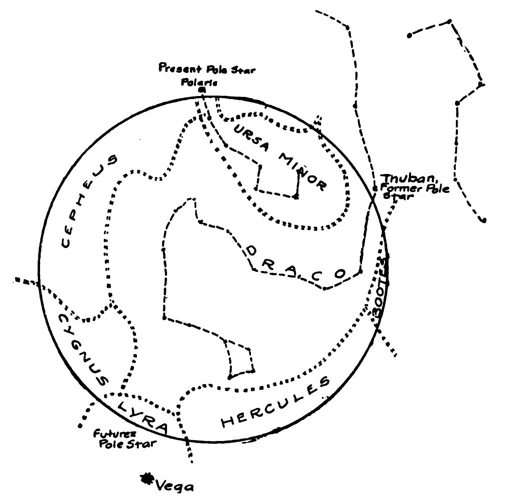
Astrology has a rich history in ancient China, where it was deeply ingrained in traditional culture and believed to have a profound impact on various aspects of life. The Chinese approach to astrology differed from the astrological practices of other ancient civilizations in several ways. Firstly, Chinese astrology focused on the interaction between the five elements (wood, fire, earth, metal, and water) and the twelve animal signs of the Chinese zodiac. These animal signs were assigned to individuals based on their birth year, and each sign was believed to have distinct qualities and characteristics. Secondly, Chinese astrology emphasized the concept of yin and yang, the complementary forces that exist in all aspects of life. The balance between these forces was considered crucial for harmony and prosperity. Thirdly, Chinese astrology played a significant role in areas such as government, agriculture, medicine, and marriage. It was used to determine auspicious dates for important events, to predict the outcome of military campaigns, and to guide individuals in making choices that would bring good fortune. Today, Chinese astrology continues to hold a prominent place in Chinese culture, with people still consulting astrologers for guidance in various aspects of life. The enduring popularity and influence of ancient Chinese astrology reflect its deep-rooted beliefs and practices that have shaped Chinese society throughout history.
1. Chinese Astrology as a Part of Traditional Culture
Chinese astrology holds a prominent place in the rich tapestry of traditional Chinese culture. Dating back to ancient times, Chinese astrology is deeply rooted in the belief that the positions and movements of celestial bodies can offer insights into human character, personal relationships, and even the course of one’s destiny. Unlike Western astrology, which focuses on the twelve zodiac signs, Chinese astrology operates on a twelve-year cycle, with each year being represented by a specific animal sign. These signs include the Rat, Ox, Tiger, Rabbit, Dragon, Snake, Horse, Sheep, Monkey, Rooster, Dog, and Pig. Each animal sign is associated with certain personality traits, strengths, weaknesses, and compatibility with other signs. Chinese astrology is intimately tied to Chinese philosophy, particularly the concepts of Yin and Yang and the Five Elements (Wood, Fire, Earth, Metal, and Water). These ancient principles influence the interpretation of astrological charts and provide further insight into an individual’s character, career path, and relationships. Chinese astrology is not just relegated to personal horoscopes; it also plays a role in important life events such as marriage, childbirth, and naming ceremonies. It is considered incredibly important to align these events with auspicious dates and times, as determined by astrologers. Chinese astrology remains a vibrant part of Chinese culture, impacting decision-making, relationships, and even influencing government policies. Its enduring significance speaks to the deep connection between the celestial realm and human existence in Chinese tradition. (source: A New Perspective on Astrological Personalities)
2. The Chinese Zodiac
The Chinese Zodiac, also known as Shengxiao, is a unique and ancient astrological system that dates back over 2,000 years in Chinese culture. This zodiac system is based on a 12-year cycle, with each year associated with a specific animal sign. These animal signs include the Rat, Ox, Tiger, Rabbit, Dragon, Snake, Horse, Sheep, Monkey, Rooster, Dog, and Pig. Each animal sign represents certain personality traits and characteristics that are believed to influence a person’s life and destiny. The Chinese Zodiac is not only used for personal divination but also plays a significant role in matchmaking, naming newborn babies, predicting fortunes, and guiding important life decisions. Each animal sign is further influenced by one of the five elements – Wood, Fire, Earth, Metal, and Water, adding an extra layer of complexity to the zodiac system. The Chinese Zodiac is deeply ingrained in Chinese culture and is still widely embraced and celebrated today. The year of a person’s birth sign is considered to have a profound impact on their life, relationships, career, and overall fortune. People often consult the Chinese Zodiac for guidance and insight into their personality traits, compatibility with others, and future prospects. Understanding the Chinese Zodiac not only provides a glimpse into ancient Chinese wisdom but also offers a fascinating insight into the rich cultural heritage and beliefs of the Chinese people. (source: A New Perspective on Astrological Personalities)
Unraveling the Influence of the Ancient World
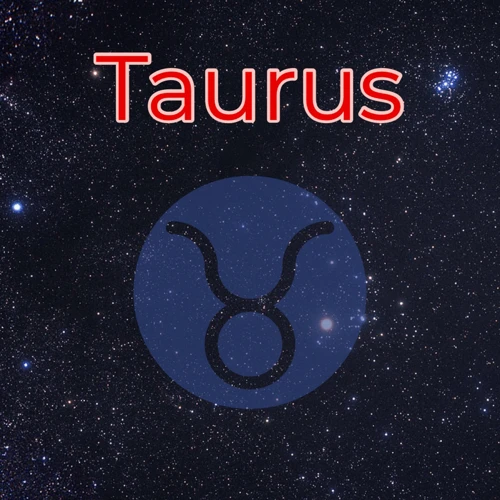
Unraveling the influence of the ancient world on astrology reveals a deep connection between the past and the present. The knowledge and practices developed by ancient civilizations continue to shape our understanding and use of astrology today. One of the key ways in which the ancient world influenced astrology is through the transmission of astrological knowledge. As empires rose and fell, knowledge was often exchanged, adapted, and refined. For example, the Babylonians played a crucial role in the development of astrology, and their astrological texts were translated into Greek during the Hellenistic period. This Greek influence then spread throughout the Roman Empire, and later influenced Arab, Persian, and Indian astrology. The impact of the ancient world can be seen in the principles and techniques that are still used today, such as horoscopic astrology and the use of zodiac signs. Another influence of the ancient world is the cultural significance of astrology. In ancient societies, astrology was intertwined with religion, mythology, and philosophy. It was seen as a means of connecting with the divine and understanding the cosmic order of the universe. This cultural significance has persisted over the centuries, as astrology continues to be a source of guidance, self-reflection, and spiritual exploration for many people. Additionally, the ancient world’s fascination with celestial phenomena and their influence on human affairs has shaped our perception of astrology as a tool for predicting and understanding human behavior and events. The ancient world’s influence on astrology is a testament to the enduring power of this ancient practice and its ability to captivate and inspire us across time.
The Evolution of Astrology
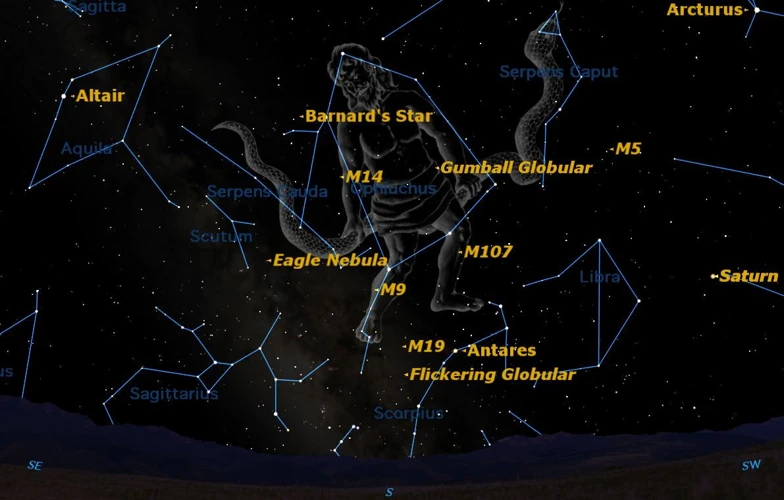
The evolution of astrology is a testament to its enduring appeal and adaptability throughout history. Over time, astrology underwent significant transformations and assimilated ideas from different cultures and civilizations. One notable period of development occurred during the Hellenistic era, when Greek astrologers combined Babylonian and Egyptian astrological traditions with their own philosophical and scientific insights. This fusion resulted in a more complex and sophisticated system of astrology. Greek astrologers introduced the concept of the zodiac, dividing the celestial sphere into twelve equal parts, each associated with a specific constellation. The Greeks also assigned ruling planets to each zodiac sign, which added another layer of symbolism and meaning to astrological interpretations. Astrology further evolved during the Islamic Golden Age, as Muslim scholars translated and expanded upon the works of ancient Greek astrologers. These scholars made significant contributions, developing new techniques and refining astrological methods. During the Renaissance, astrology gained popularity across Europe and was embraced by intellectuals, royalty, and the general population alike. It was during this time that individual horoscopes became prevalent, with astrologers creating personalized birth charts for individuals based on their date, time, and location of birth. The advent of printing press made astrology more accessible, with astrological almanacs and treatises being published and widely circulated. In recent times, advancements in technology have brought astrology to new heights. The internet age has enabled the widespread dissemination of astrological knowledge, with online platforms and websites providing horoscopes, birth chart calculators, and interactive forums for discussions. The evolution of astrology continues to this day, as new perspectives and interpretations emerge, blending traditional practices with modern insights. Astrology has demonstrated its resilience, adapting to the changing needs and beliefs of society while retaining its core principles. (source: A New Perspective on Astrological Personalities)
Modern Astrology: A Continuation of Ancient Wisdom
Modern astrology is a continuation of the ancient wisdom and practices that have been passed down through generations. While the world has evolved and scientific advancements have been made, astrology still holds relevance and continues to captivate people’s interest. In the modern era, astrology has adapted to new technologies and mediums, reaching a wider audience and gaining popularity around the globe.
One of the key aspects of modern astrology is the availability of astrology readings and horoscopes through online platforms and mobile applications. Individuals can easily access personalized astrological insights, providing them with guidance, predictions, and a better understanding of themselves and their relationships. The convenience of having astrology at their fingertips has contributed to the widespread popularity and accessibility of this ancient practice.
Modern astrology places emphasis on personal development and self-awareness. It acts as a tool for individuals to gain insights into their strengths, weaknesses, and life purpose. By studying their birth charts, individuals can explore their personality traits, talents, and potential challenges they may face. Astrology encourages self-reflection and empowers individuals to make conscious choices and embrace their authentic selves.
Additionally, modern astrology has expanded beyond the traditional zodiac signs and horoscopes. There are now specialized branches such as relationship astrology, career astrology, and financial astrology, catering to specific areas of life. These branches allow individuals to gain deeper insights into various aspects of their lives and make informed decisions.
It’s important to note that modern astrology has also faced criticism and skepticism, with some dismissing it as pseudoscience. However, many people still find value and meaning in the insights and guidance provided by astrology. It serves as a tool for introspection, self-discovery, and personal growth.
Modern astrology carries forward the ancient wisdom and practices of astrology to meet the needs and interests of the contemporary world. Its adaptation to new technologies, focus on personal development, and expansion into specialized branches have contributed to its relevance and popularity in today’s society. Whether seen as a form of entertainment, a tool for self-reflection, or a guide for decision-making, astrology continues to offer a unique perspective and invites individuals to explore the profound connections between the celestial and human realms.
Conclusion
In conclusion, the ancient origins of astrology reveal a deep-rooted human fascination with the stars and their influence on our lives. From the early civilizations of Mesopotamia to the ancient Egyptians, Greeks, and Chinese, astrology played a significant role in shaping their cultures, beliefs, and decision-making processes. The study of celestial phenomena and the belief in the correlation between the stars and human affairs provided guidance, divination, and a means of understanding the world. Astrology was intertwined with religion, mythology, and astronomy, and its influence permeated various aspects of society, including politics, agriculture, medicine, and rituals. While the exact origins of astrology remain somewhat mysterious, its evolution and adaptation throughout history have allowed it to persist and remain relevant in the modern world. Today, astrology continues to captivate individuals seeking self-discovery, guidance, and insight into their lives and relationships. Whether one chooses to believe in its accuracy or view it as a form of entertainment, astrology’s enduring presence is a testament to the enduring fascination humans have with the mysteries of the cosmos.
Frequently Asked Questions
1. What is astrology?
Astrology is the study of the movements and positions of celestial bodies, such as the stars, planets, and moon, and how they are believed to influence human behavior and events on Earth.
2. How far back does astrology date?
Astrology can be traced back to ancient civilizations, with evidence of its existence dating as far back as 2,400 years ago in ancient Mesopotamia.
3. How did astrology develop in ancient Mesopotamia?
In ancient Mesopotamia, astrology developed as a way to interpret and predict celestial events and their impact on human life. It was closely connected to the religious and political beliefs of the time.
4. Did astrology have a significant role in ancient Egyptian culture?
Astrology played a significant role in ancient Egyptian culture. The Egyptians believed that the stars and planets held divine powers and used astrology for guidance in daily life, religious rituals, and even royal decisions.
5. What is the Egyptian zodiac?
The Egyptian zodiac is a system of astrology that consists of 12 signs, each associated with a different symbol and deity. It differs from the Western zodiac and is based on the ancient Egyptian calendar and mythology.
6. How did the Greeks contribute to astrology?
The Greeks made significant contributions to astrology by incorporating it into their philosophical and scientific traditions. They further developed the concept of the zodiac and introduced new astrological techniques and theories.
7. What role did astrology play in Greek society?
Astrology had a prominent role in Greek society. It influenced decisions regarding marriage, agriculture, politics, and even warfare. People consulted astrologers for guidance in various aspects of life.
8. How did ancient China incorporate astrology?
Astrology was deeply ingrained in ancient Chinese culture. It was used to predict and analyze events, guide decision-making, and even determine the best times for important activities, such as weddings or building projects.
9. What is the Chinese zodiac?
The Chinese zodiac, also known as Shengxiao, is a 12-year cycle in which each year is associated with a specific animal sign. These signs are believed to have certain characteristics and influence the personality traits of individuals born under them.
10. How has astrology evolved over time?
Astrology has evolved greatly over time. Modern astrology has incorporated advancements in astronomy, psychology, and spirituality, allowing it to adapt to the changing needs and beliefs of different societies.

